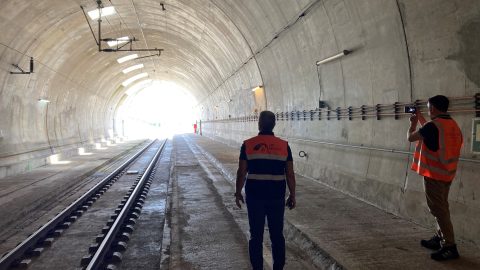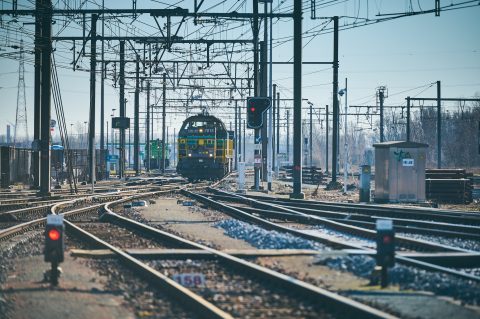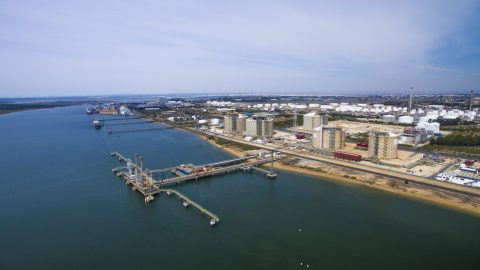Adaptable Carriage concept swaps passenger seats for freight space

A pioneering design which enables train operators to stow away passenger seats to make way for cargo space has been developed and is available for trials. Designed by by UK-based 42 Technology, the ‘Adaptable Carriage’ concept offers significant commercial and environmental benefits, both for operators and rail freight users.
Describing it as a ‘complete seating system’, 42 Technology says seats and tables on a passenger carriage can be automatically folded down to create space for what it calls ‘low density, high-value’ packages and other types of cargo that would otherwise go by road.
‘Adaptable Carriage’
It has been developed as part of a two-year programme, funded by the Rail Safety Standards Board (RSSB), with considerable input from the wider UK rail industry. If and when deployed on a large scale, it has the potential to help ease road congestion, cut harmful emissions. It will also, they say, enable online retailers to offer later cut-off times for orders, faster deliveries and new services.
The technology has been designed so that it can be retrofitted into existing passenger carriages, or integrated into new build designs. Now ready for use in its first industrial trials, Adaptable Carriage was this week showcased at the international Railtex exhibition at Birmingham’s NEC arena.
Cross-sector innovation
Chris Lawrence, Technical Director at the RSSB, said: “Adaptable Carriage is an example of what can be achieved when the UK rail industry partners with a cross-sector innovation consultancy to develop solutions to specific rail challenges.”
All of the seats, tables and screens within each section of an Adaptable Carriage are interconnected and can be folded along the length of the carriage via a system which also covers the working mechanisms when in passenger use. The reconfiguration process is fully automated, takes under three minutes to complete and as a result, the 20 rows of seats found in a typical passenger carriage can be compressed to create cargo space equivalent to the capacity of an articulated lorry.
Modal shift
Though just one small element of the drive towards rail modal shift, the development of Adaptable Carriage nevertheless offers a novel, yet practical way to get more rail freight onto the network. 42 Technology says it is already in talks with a number of interested parties to support initial trials of the system, and to enable further commercial development of the technology.
The concept was named one of three winners in the RSSB’s Tomorrow’s Train Design competition in 2015, when 42 Technology was awarded a share of a 2.2 million Pounds fund to continue developing its Adaptable Carriage technology. Although the company had limited experience of the rail industry compared with other entrants, it was chosen on the strength of its novel concept, detailed business case and track record in helping solve complex mechanical engineering challenges across several sectors.
You just read one of our premium articles free of charge
Want full access? Take advantage of our exclusive offer





